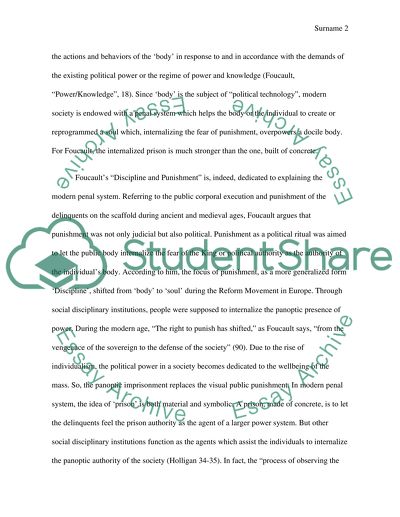Foucault's Discipline and punish Essay Example | Topics and Well Written Essays - 500 words. Retrieved from https://studentshare.org/miscellaneous/1629738-foucaults-discipline-and-punish
Foucault'S Discipline and Punish Essay Example | Topics and Well Written Essays - 500 Words. https://studentshare.org/miscellaneous/1629738-foucaults-discipline-and-punish.


